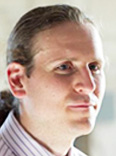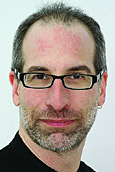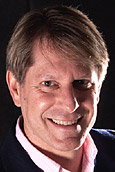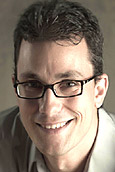Seven members of the Lawrence University faculty have been promoted to the rank of associate professor and eight faculty have been granted tenure appointments by the college’s Board of Trustees.

Garth Bond, Dominica Chang, Scott Corry, Stefan Debbert, Adam Galambos, Doug Martin and Peter Thomas all have been granted tenure and promoted to associate professor. David Gerard, associate professor of economics, also has been granted tenure.
Bond joined the English department in 2004 after teaching at Temple University and the University of Chicago, where he earned his Ph.D. His scholarship interests include Shakespeare, Renaissance literature, poetry and drama, manuscript studies, the history of the book and film. He earned his bachelor’s degree at Trinity University.

Chang, a French department faculty member since 2007, came to Lawrence after receiving her Ph.D. at the University of Michigan, a master’s degree in French Studies at Middlebury College and bachelor’s degree at the University of Wisconsin-Madison. A native of South Korea, her scholarship interests include 19th-century French studies, revolutionary studies, literary history and historiography, media studies and print culture. She was the recipient of Lawrence’s Young Teacher Award in 2010.

Since joining the Lawrence mathematics department in 2007, Corry has taught numerous calculus, algebra, number theory and geometry courses while pursuing his research interests in analogies between Riemann surfaces and finite graphs. He spent part of 2009 as a visiting fellow at the Isaac Newton Institute for Mathematical Sciences in Cambridge, England, and was recognized with Lawrence’s Young Teacher Award in 2011. He earned his doctoral degree at the University of Pennsylvania and his bachelor’s degree at Reed College.

Debbert brought a background in theoretical computational chemistry with him when he joined the chemistry department in 2007. His scholarship interests in organic synthesis include research on the medicinal properties of organometallic cobalt-alkyne compounds. He was instrumental in the establishment of the biochemistry major at Lawrence in 2009. He earned his bachelor’s degree from Cornell University and his Ph.D. at the University of Minnesota.

A specialist in game theory, Galambos came to Lawrence in 2006 as a member of the college’s Post-doctoral Fellows program. He was offered a tenure track position in the economics department following his initial two-year appointment. Prior to Lawrence, Galambos spent two years teaching in the MBA program at Northwestern University’s Kellogg School of Management. He played a leading role in launching Lawrence’s Innovation and Entrepreneurship program. A native of Hungary, he earned his bachelor’s degree at Northern Iowa University and his master’s and doctoral degrees at the University of Minnesota.

Martin joined the physics department in 2007, where he teaches courses in optics, quantum mechanics and experimental physics, among others. A biophysicist, his scholarly interests focus on the mechanics and dynamics of cellular processes — transport, motility, division and signaling — that explain how life works. Originally from Denver, Colo., he earned a bachelor’s degree with honors in mathematics and physics at Pomona College and completed his Ph.D. in physics at the University of Texas.

Thomas joined Lawrence’s Russian Studies department in 2006 after teaching at St. Olaf College. Beyond teaching Russian, Thomas also leads classes in 20th-century Russian literature, especially the works of Valdimir Nabokov. Additionally, his scholarly interests include Russian poetry, translation and contemporary composers. He attended Northwestern University, where he earned his bachelor’s degree in comparative literature and his master’s and doctoral degrees in Russian literature.

A specialist in risk regulation and public policy, Gerard joined the Lawrence economics department in 2009 after eight years at Carnegie Mellon University, where he was the executive director of the Center for the Study & Improvement of Regulation. He has helped develop a pair of interactive websites that allow users to explore various dimensions of fatality risks — TrafficSTATS and Death Risk Rankings. Named a National Endowment for the Humanities Summer Scholar in 2010, that same year he was appointed to a National Academy of Sciences panel that was investigating unintended acceleration in vehicles. He earned his bachelor’s degree at Grinnell College and his master’s and Ph.D. at the University of Illinois.
About Lawrence University
Founded in 1847, Lawrence University uniquely integrates a college of liberal arts and sciences with a nationally recognized conservatory of music, both devoted exclusively to undergraduate education. It was selected for inclusion in the Fiske Guide to Colleges 2013 and the book “Colleges That Change Lives: 40 Schools That Will Change the Way You Think About College.” Individualized learning, the development of multiple interests and community engagement are central to the Lawrence experience. Lawrence draws its 1,500 students from nearly every state and more than 50 countries. Follow Lawrence on Facebook.



